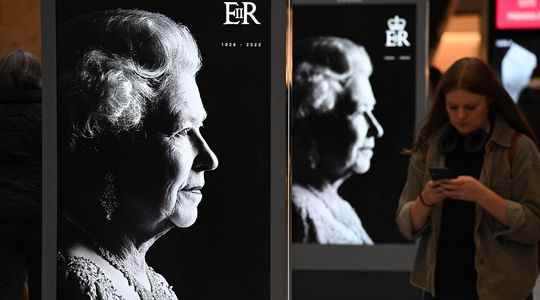On April 5, 2020, in the midst of the first wave of Covid, Queen Elizabeth II spoke from her Windsor Castle, where she confined herself with Prince Philip, to all Britons, while the milestone of 5,000 dead is about to be crossed in the UK. A short speech (less than five minutes), full of expressions that hit home. “Together we are tackling this disease, we will beat it. I hope that in the years to come everyone can be proud of how they have risen to this challenge. And those who come after us will tell us that the Britons of this generation were as strong as the others.”
Is it the sobriety of speech? The queen’s emerald green dress, a touch of hope to overcome the pandemic? His gift for empathy? Or this brief reference to his first radio speech on October 14, 1940, when the country feared a German invasion? “We know, each of us, that in the end everything will be fine”, already promised at the time the one who was still only a princess.
Victoria’s great-great-granddaughter, who has just died at the age of 96, was not only the sovereign of a people, but also, in her own way, the queen of the world, and therefore a little ours, we French, incurable republicans always moved by reason but no doubt secretly a little nostalgic for the charms of the monarchy, since we made the choice in 1793 to behead our king. Elizabeth II, with her sense of humor and her colorful fascinators, her taste for respect for tradition, her longevity and her popularity regained after being upstaged by Lady Diana, nicknamed “the people’s princess”, embodied this magic.
The end of an era ?
Seven decades of reign, the equivalent of 10 seven years or 14 five years. Even Putin or Xi Jinping look like temp workers in comparison. But, precisely, the queen reigns, she does not govern. To her the incarnation of the nation, far from the political grub and always above the parties. And, unlike Gaullist France, it is not just a formula. Symbol of permanence and long time, at a time when headwinds are blowing on the Union Jack and when Brexit is shaking the British political spectrum, the deceased sovereign could look ahead without batting an eyelid. “The pride of what we are is not part of our past, it defines our present and our future”, she said, this April 5, 2020, in the midst of a pandemic.
It is precisely in the most serious crises of the country that this link between the monarchy and the people has been strengthened. When, for example, Buckingham Palace was bombed on September 13, 1940. Or, a few months later, when his mother Elizabeth, wife of King George VI, who was advised to send her daughters Margaret and Elisabeth to the shelter in Canada, answered: “The children will never leave without me, I will not leave without the king, the king will never leave.” The same sense of duty inhabited the entire reign of Elizabeth II and is reflected today in the first declarations of the new sovereign Charles III.
But how long will this magic work? The anachronism of a royal regime appealed less and less to His Majesty’s young subjects. And if more than 6 out of 10 Britons support the monarchy, there are only a third of them among 18/24 year olds, according to the YouGov institute. Is the decline of the monarchy inevitable? Already, Queen Elizabeth had disappeared into the bottom of the rankings of the most influential women in the world. In 49th place in 2012 according to the list of Forbes, it only appeared in 70th position in 2021. As if an era was closing. Aware of the threat, Charles III promised to modernize the monarchy. Perhaps he dreams of being a “normal” monarch. No doubt, provided you don’t forget that the essential sometimes hides in the superfluous.
